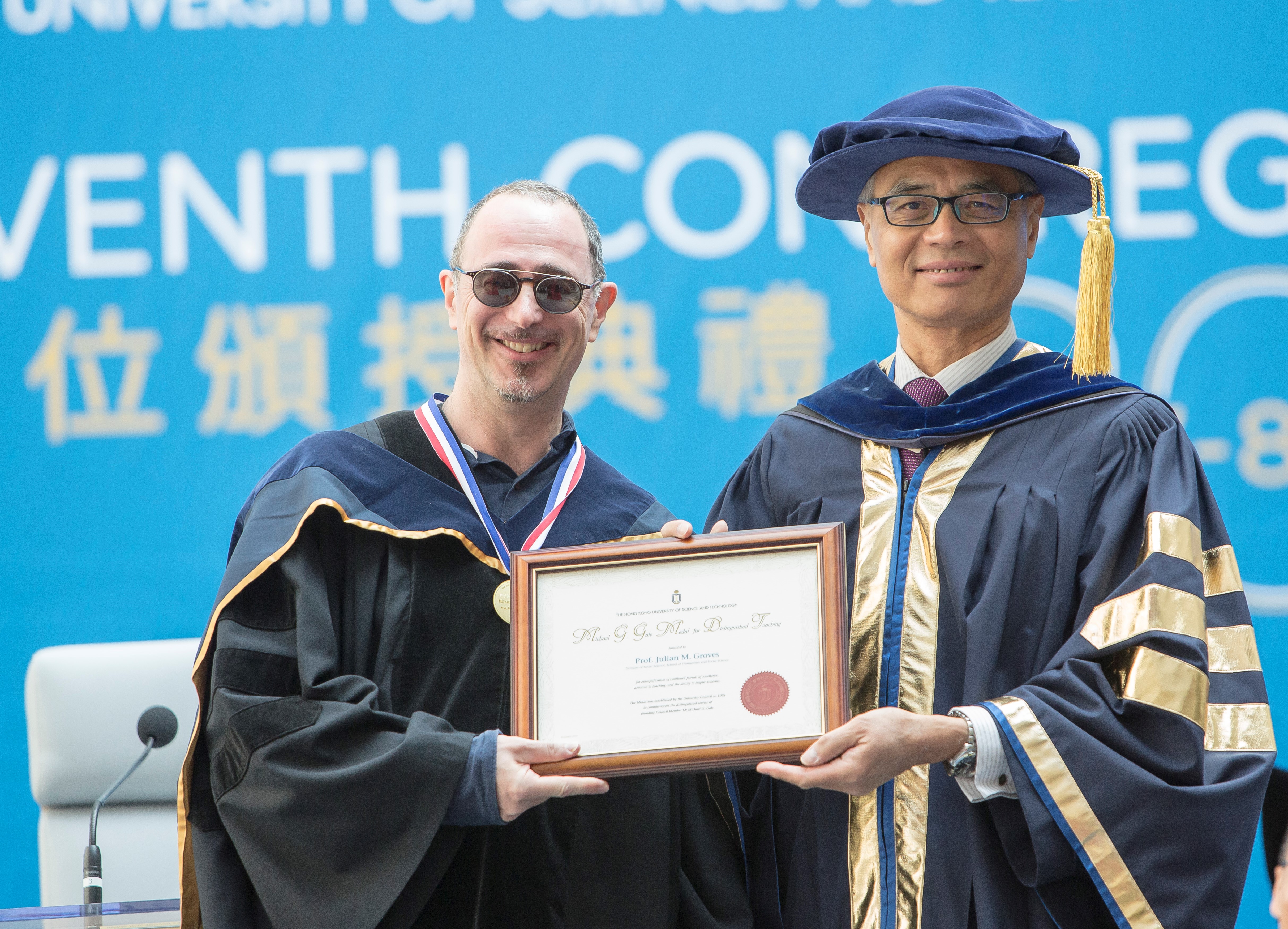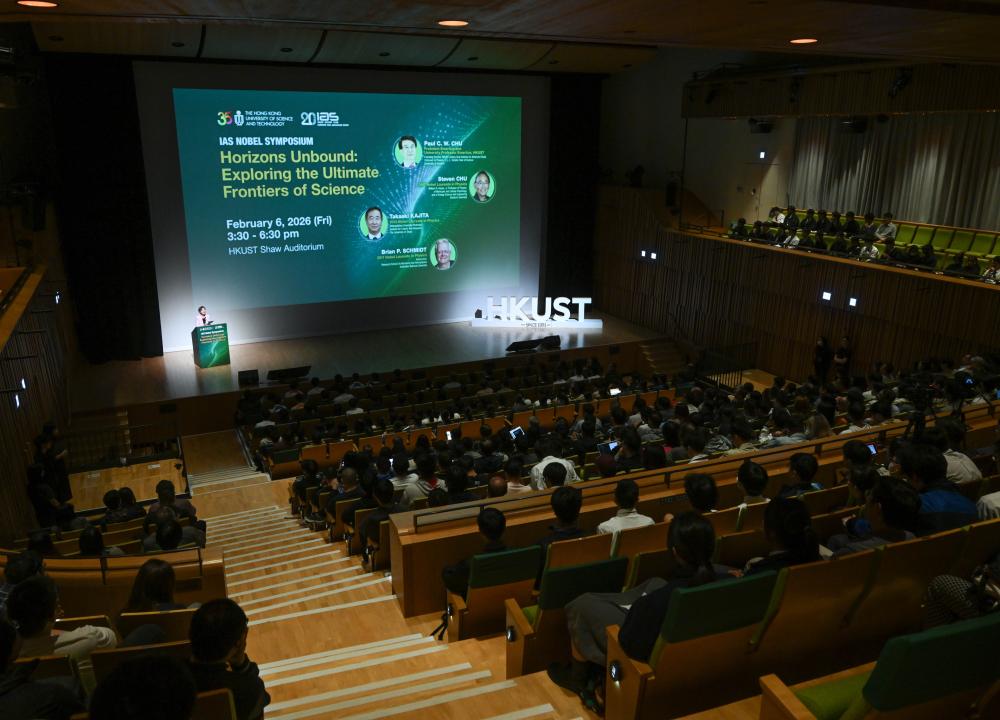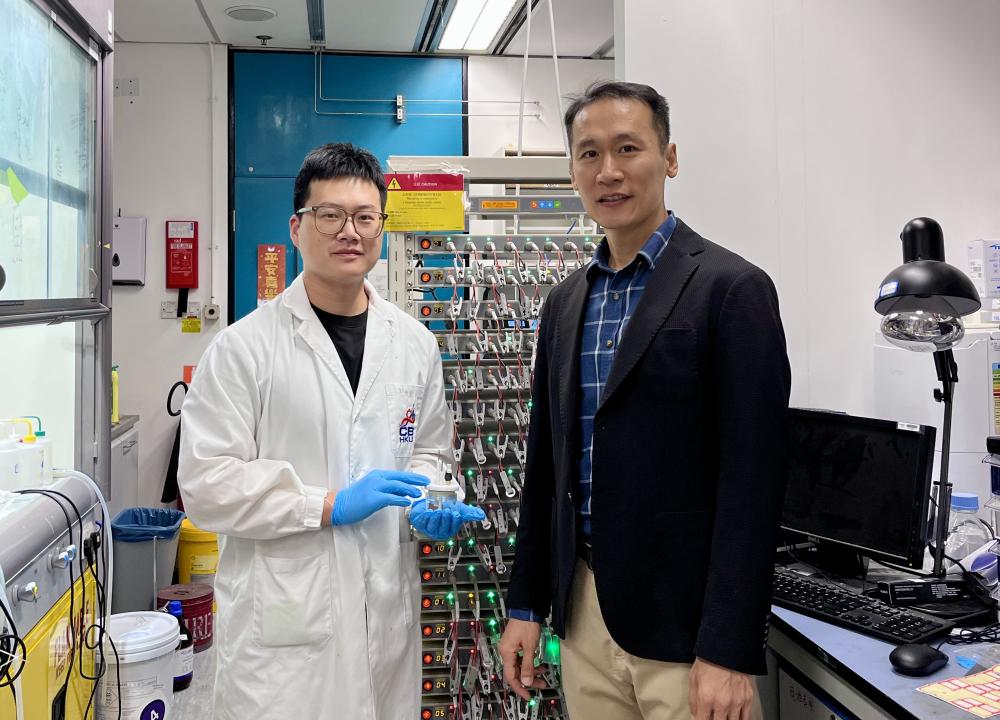Understanding Therapeutic Value of Sociology
Students attending the classes of Prof. Julian GROVES of the Division of Social Science understand that switching off and putting away their electronic devices is mandatory—even the use of laptops or tablets for note-taking are discouraged—because Prof. Groves reckons that while the internet can be an important resource for educators, “mobile devices can be a terrible distraction to classroom learning”. The students might not like it at first, but they rarely complain about it because they are offered “something equally compelling in return” which involves many interactive activities such as surveys, quizzes, simulations, and discussions to keep them engaged.
Despite this strict rule in class, the Associate Professor of Social Science Education is one of the most admired faculty members at HKUST. His “learning by doing” teaching approach combined with “flipped classrooms” has been hugely popular among students. For instance, students are to monitor their spending habits to see if it's possible for a family to live off minimum wage or analyze the media and social media for gender bias. This way, they can generate conceptual ideas themselves, from what they’ve read or from their own experiences.
Prof. Groves’ longstanding commitment to student learning and dedication to improving and innovating educational processes have earned him HKUST’s Michael G Gale Medal for Distinguished Teaching this year. The prestigious award was established to reward the faculty member who best exemplifies the continued pursuit of excellence, devotion to teaching, and the ability to inspire and motivate others.
Given Prof. Groves’ lifelong passion for sociology, it is hard to imagine that he actually hated the discipline at first, while he studied sociology at Durham University in the UK. He was quite idealistic in his teens and he wanted to become a social worker, so he thought sociology would be a relevant degree. But it turned out the subject “seemed very abstract, theoretical, not to mention ideological”, he remembers. It was only when he discovered its more humanistic side, particularly ethnography, he began to appreciate its relevance to what was going on around him. He later received a Master’s and PhD in sociology from the University of North Carolina at Chapel Hill and eventually became an educator teaching sociology.
Prof. Groves first joined HKUST in 1992. After a period of broadening his experience elsewhere, he re-joined the University in 2008 with a renewed ambition to enhance the social sciences curriculum that would relate more closely to students’ personal lives. “I was more interested in trying to find the therapeutic value of the social sciences, rather than just teaching it as a technique,” he says.
According to Prof. Groves, his students, like everyone else, are deeply anxious and insecure about many things: grades, jobs, money, family, friendships. He focuses on teaching them to “see the bigger picture” and “be mindful of how their behavior affects others.” “The sociologically mindful person understands that our behaviors and decisions are the product of history, conventions, groups, and social situations, that our choices are limited, our minds are frail, and we act on imperfect information. This is not only important in understanding ourselves, but also when empathizing with others,” he explains.
One cannot fully grasp the complex and multi-faceted societal issues of a place without knowing its history. To the surprise of Prof. Groves, his students generally have very little background in Hong Kong history. They need to have actual contact with people from different strata of society to learn more about Hong Kong.
Therefore, Prof. Groves initiated “service learning” by fostering partnerships with local NGOs to develop projects which provide students with diverse problem-solving opportunities: designing a workplace that is accessible for wheelchair users; providing a financial planning program for young single mothers; assisting social workers in providing activities for non-engaged youth; teaching domestic workers interviewing and job-seeking skills, and many more. It thrills Prof. Groves when his students have done something truly amazing for the community, touched the lives of others, or conducted some meaningful research.
Crowned with the top teaching honor, Prof. Groves humbly says it’s all about teamwork and the credits should be shared by everyone. “Excellent teaching is as much a product of a good teaching environment: appropriate class sizes, the physical design of the classroom, thoughtful curriculum planning, qualified and effective teaching assistants, the preparedness of students as it is the product of good teachers.” And he encourages conversations and exchanges with other professors to see what they are doing in their classrooms.
In the coming future, Prof. Groves wants his students to explore how different walks of life, especially the underprivileged, are influenced by climate change. “I’ve noticed that many of the homes we’ve visited in poor areas, particularly subdivided houses, are very hot. I’d like the students to explore how different communities are affected by the issues,” he says.













